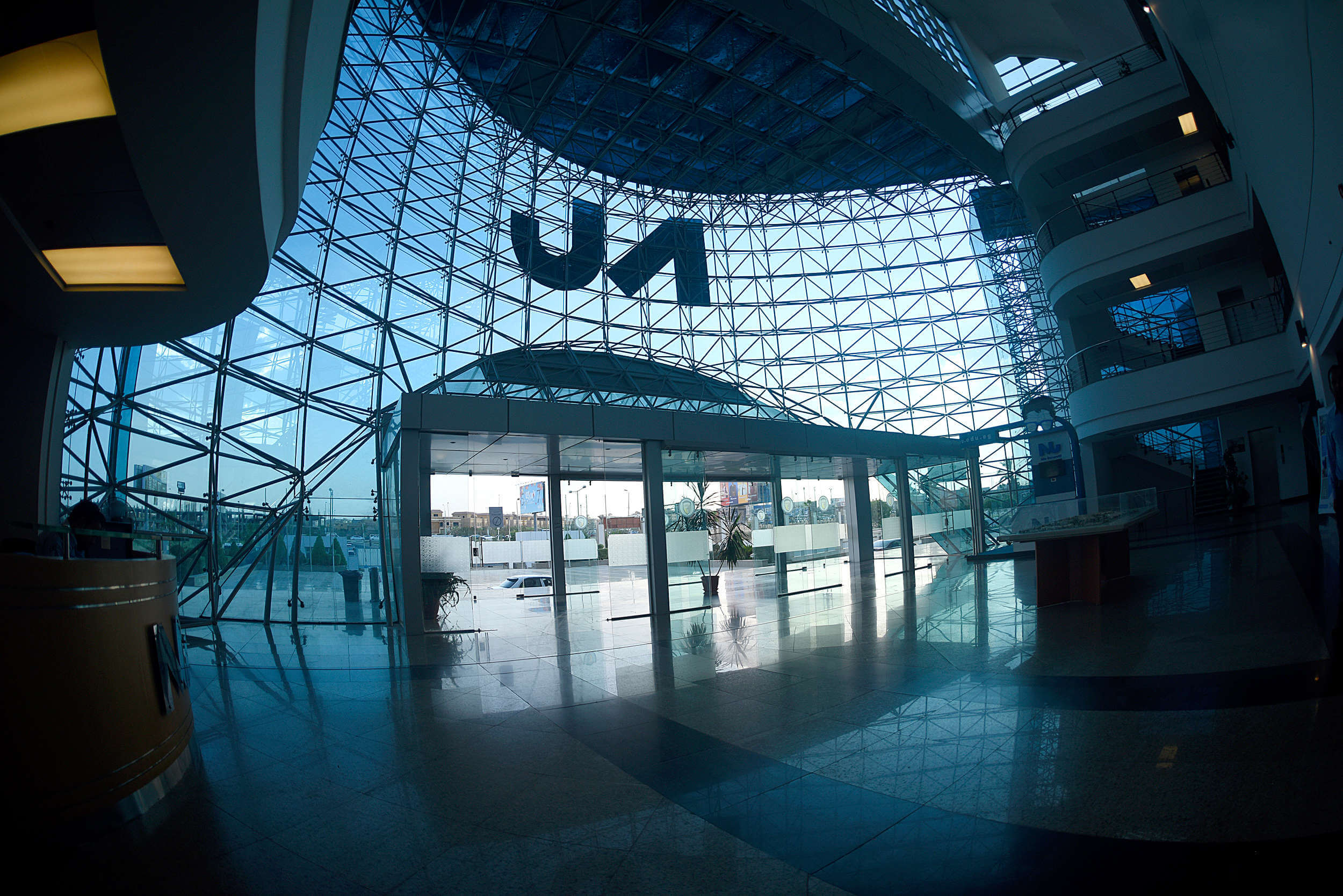Courses
Physics II
Electrostatics, electric charge, Coulomb’s law, insulators and conductors, electrostatic field, electric flux, Gauss’ law, electric potential, electrostatic potential energy, dielectrics and capacitances, electromotive force, electric current, resistance, Ohm’s law, electric power, direct current circuits, Kirchhoff’s laws, mesh analysis, magnetism, magnetic forces, sources of magnetic fields, Bio
PHY 112
Differential Equations
Finding the solutions of ordinary differential equations (ODEs) by different ways using analytical techniques for linear first order and higher order ODEs and their simulations, time-frequency transformation, Laplace transform, Fourier transform, modelling of different dynamical engineering applications.
MTH 215
Numerical Methods
Numerical methods used for solving linear algebraic equations and differential equations, numerical methods for performing differentiation, integration, and curve fitting, properties of some special functions.
MTH 216
Calculus II
Techniques of integration, definite and indefinite integrals, improper integrals, multiple integrals, applications of integration (finding the length of a plane curve, planar areas, areas of surfaces of revolution and volumes of revolution). Functions of complex variables and their derivatives, Complex integrals, Cauchy integral theorems.
MTH 112
Engineering Mechanics II
Kinematics of rigid bodies, planar translation, rotation, general plane motion, kinematics of slider-crank, four bar linkage mechanism, velocity, acceleration, instantaneous center, Kinetics of rigid bodies, equations of motion, mass moment of inertia, radius of gyration, principle of work and energy, principle of Impulse and momentum, impact, applications, free vibrations of Particles, simple
MEC 112
Electrical Engineering
DC circuit analysis, reduction methods, mesh current and node voltage analysis methods, transformation methods, DC network theorems, capacitors, inductors, RC, RL and RLC phasors, and AC steady state circuit analysis, power factor, series and parallel resonance, quality factor, power in AC circuits, two port networks.
MNG 231
Mechanics of Materials
Concepts of stress and strain, mechanical behavior of materials, internal reactions in rods, axial deflections in rods, mechanical and thermal loadings, Statically indeterminate rods, Lateral deflections (Poisson’s ratio), Generalized Hooke’s law, normal and shear stress in beams, pure bending, bending due to eccentric forces (2D and 3D), torsion of solid and hollow circular members, transverse
MNG 213
Manufacturing Processes
Fundamentals of manufacturing processes such as casting, heat treating, particulate processing, forming, machining, joining and surface processing, Surface finish, machining symbols, Fits and tolerances, material flow and information flow in the manufacturing industry.
MNG 222
Modeling and Simulation of Dynamic Systems
Modeling and simulation of electrical systems, mechanical systems, electromechanical systems, etc., Dynamic systems, dynamic models, Frequency domain-based modelling, Time domain-based modelling, State space modelling of discrete time systems, Modelling examples of various practical systems.
MNG 241
Electronic Circuits
Structure and behavior of PN junction diode and its applications, methods of biasing discrete transistors, BJT, JFET and MOSFET designing and analyzing single stage and multistage amplifier circuits, analyzing the frequency response of small signal amplifiers, designing, and analyzing the regulated DC power supplies, Troubleshooting power supplies.
MNG 232
Mechanical Design I
Fundamentals of design principles. Use of computer aided drafting software. Geometric dimensioning and tolerancing, Welding drawings, Miscellaneous types of fasteners (bolts, rivets, keys ….). Introduction to mechanisms (belts, chains, gears, ...). Design, Make and Test (DMT) project, that includes mechanisms and standard parts.
MNG 223
Mechanical Design II
Design under static and cyclic loading. Design of shaft. Design of couplings, bearings, and seals. Design of essential machine elements used in power transmission, including gears, roller chain drives, belts, and clutches.
MNG 324
Economics and Project Management in Mechanical Engineering
Fundamental economic concepts, Time Value of Money, Interest Rates, Cost Analysis and Estimation, Benefit Analysis, Break-Even Analysis, Depreciation and Asset Management, Project Evaluation Methods, Cash flow and Investment Decision. In addition, the course addresses the fundamentals of project management, project life cycle, project networks, GANTT chart, schedule resources and cost, monitoring
MNG 412
Thermodynamics I
Basics concepts of thermodynamics, conversion of heat to mechanical work, properties of pure substance, 1st law of thermodynamics for open and closed systems, 2nd law of thermodynamics, entropy and entropy change.
MNG 271
Fluid Mechanics I
The difference between a fluid and a solid, properties of fluids, fluid statics and hydro-static forces, continuity equation, momentum equation, energy equation and applications, dimensional analysis, pressure losses in pipes and fittings.
MNG 381
Kinematics and Dynamics of Mechanical Systems
Introduction to linkages, types and classification of joints, mechanisms, and machines, Calculations of degrees of freedom (mobility) for planar mechanisms, Gruebler and Kutzbach equations, Grashof and non-Grashof conditions, Paradoxes, Intermittent Motion, Toggle, transmission angle, Compliant mechanisms, Cognates, Function generation, Motion generation, Path generation, Kinematics fundamentals
MNG 314

